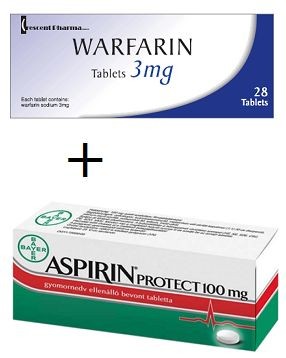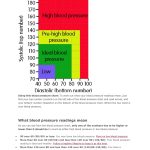
Contents
Aspirin vs. warfarin (Coumadin, Jantoven)
Aspirin is a nonsteroidal anti-inflammatory drug (NSAID) used to treat fever, pain, and inflammation. It is also used to prevent blood clots (antithrombotic). Other NSAIDs include ibuprofen (Motrin), nabumetone (Relafen), and indomethacin (Indocin). NSAIDs reduce levels of prostaglandins, chemicals released during inflammation, by blocking cyclooxygenase, an enzyme that produces prostaglandins. This reduces inflammation, pain, and fever. Aspirin is also used to lower the risk of stroke or heart attack in those who have already experienced one.
Warfarin (brand names Coumadin, Jantoven) is an oral anticoagulant that prevents blood clots by reducing the production of clotting factors by the liver. These factors depend on vitamin K, which warfarin inhibits. Warfarin is used to treat deep vein thrombosis (DVT), prevent further emboli in patients with pulmonary embolism, reduce the risk of strokes and heart attacks in patients with atrial fibrillation or artificial heart valves, prevent blood clots after orthopedic surgeries, and prevent closure of coronary artery stents.
QUESTION
What are the side effects of aspirin and warfarin?
Aspirin
Most patients benefit from aspirin and other NSAIDs with few side effects. However, serious side effects can occur and generally tend to be dose-related. Therefore, it is advisable to use the lowest effective dose to minimize side effects.
The most common side effects of aspirin involve the gastrointestinal system and ringing in the ears.
Gastrointestinal side effects include ulcerations, burning, pain, cramping, nausea, gastritis, and even serious gastrointestinal bleeding and liver toxicity.
Sometimes, ulceration and bleeding can occur without abdominal pain. Black tarry stools, weakness, and dizziness upon standing may be the only signs of internal bleeding.
Ringing in the ears indicates that the daily dose should be reduced.
Other side effects of aspirin include exacerbation of asthma, increased blood uric acid levels in patients with hyperuricemia and gout, and increased risk of Reye’s Syndrome in children and teenagers with symptoms of the flu or chickenpox. Aspirin can also enhance the effects of diabetes medications, interfere with blood clotting during elective surgery, and should be avoided by patients with peptic ulcer disease or poor kidney function.
Warfarin
The two most serious side effects of warfarin are bleeding and skin necrosis (gangrene).
Bleeding can occur in any organ or tissue, causing various symptoms such as headache, paralysis, joint pain and swelling, weakness, fainting spells, black tarry stools, vomiting of blood, coffee ground material, back pain, and blood in urine.
Other side effects of warfarin include purple, painful toes, rash, hair loss, bloating, diarrhea, and jaundice.
Signs of overdose include bleeding gums, bruising, nosebleeds, heavy menstrual bleeding, and prolonged bleeding from cuts.
What is the dosage of aspirin vs. warfarin?
Aspirin
- Aspirin should be taken with food. Doses range from 50 mg to 6000 mg daily depending on the use.
- Usual doses for mild to moderate pain are 350 or 650 mg every 4 hours or 500 mg every 6 hours.
- Doses for rheumatoid arthritis include 500 mg every 4-6 hours; 650 mg every 4 hours; 1000 mg every 4-6 hours; 1950 mg twice daily.
- Heart attacks are prevented with 75, 81, 162 or 325 mg daily.
- 160 to 325 mg of non-enteric coated aspirin should be chewed immediately when experiencing symptoms of a heart attack.
- The dose for preventing another stroke is 75 to 100 mg daily.
Warfarin
- Warfarin may be taken with or without food.
- Dosages need to be lowered in patients with liver and kidney dysfunction as warfarin is metabolized by the liver and excreted by the kidneys.
- Blood tests (INR tests) are performed to measure the effect of warfarin and to adjust dosing.
- Treatment usually starts at 2 to 5 mg once daily and is adjusted based on INR test results.
- Patient typically require 2 to 10 mg of warfarin daily.
What drugs interact with aspirin and warfarin?
Aspirin
- Aspirin is associated with several suspected or probable interactions that affect the action of other drugs.
- NSAIDs may increase blood levels of lithium by reducing its excretion, leading to lithium toxicity.
- Aspirin may reduce the blood pressure-lowering effects of blood pressure medications.
- When used in combination with methotrexate or aminoglycoside antibiotics, aspirin may increase blood levels of these drugs, potentially causing more side effects.
- Aspirin should be avoided with oral blood thinners or anticoagulants like warfarin to prevent excessive blood thinning and serious bleeding.
Warfarin
- Many drugs, both prescription and nonprescription (OTC), can affect the anticoagulant action of warfarin or increase the risk of bleeding.
- Patients on warfarin should regularly consult their doctor before taking any medications on their own.
- It is advisable for patients on warfarin to carry identification, such as bracelets, to alert other healthcare professionals to their anticoagulation therapy.
- Examples of drugs that interact with warfarin include those that increase its effect by reducing its breakdown and those that reduce its effect by increasing its breakdown.
- Bleeding is increased by other anticoagulants, antiplatelet drugs, serotonin reuptake inhibitors, garlic, and ginkgo.
By clicking Submit, I agree to the MedicineNet’s Terms & Conditions & Privacy Policy and understand that I may opt out of MedicineNet’s subscriptions at any time.
Are aspirin and warfarin safe to use while pregnant or breastfeeding?
- Aspirin is generally avoided during pregnancy due to potential adverse effects on the fetus. However, low-dose aspirin has been safely used for preventing pregnancy complications.
- Aspirin is excreted into breast milk and may cause adverse effects in the infant.
- Warfarin should be avoided by pregnant women or women who may become pregnant due to the risk of birth defects and fetal bleeding.
- Available evidence suggests that warfarin is not secreted in breast milk.


